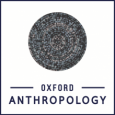With its multidimensional etiology, rich history, and increasingly complex epidemiology, anorexia nervosa (from here on, referred to as “anorexia”) has emerged as a biocultural disorder of significance for medical anthropology. Anthropological work on anorexia was first published in the 1980s, with these initial engagements examining the Western cultural context wherein anorexia was known to be expressed. Over the decades, paradigm shifts in medical anthropology—from culture-bound syndromes and explanatory models of disease to analyses of globalization and ethnographies of the body and self—transitioned the anthropological discussion of anorexia away from “culture” and toward the critical analysis of practice, experience, and subjectivity. But the anthropological narrative of anorexia is even richer, having been informed by more than a century of multidisciplinary work: a vast corpus that constitutes an unlikely gathering of disciplines, all searching for the key to anorexia’s causation and course. Since its clinical definition in the 1870s, anorexia—a disorder of ambiguous and complex causation, with striking psychological, social, physiological, and behavioral manifestations—has been subject to myriad interpretations. In fields ranging from biomedical (including genetic and neuro-) science to the many schools of psychology, history, and feminist social theory, scholars have offered interpretations of anorexia, each addressing a facet of this condition. With historical analyses tracing anorexia through the 1800s and to pre-Enlightenment times, feminist analyses positioning anorexia as the embodiment of sociopolitical thought, and evolutionary and genetic analyses suggesting anorexia is the possible expression of adaptive traits, multidisciplinary work on anorexia has captured a complexity that is yet to be fully understood. It is this complexity, blurring the boundaries of body, society, history, and self, that makes anorexia so relevant for medical anthropology, its enduring ambiguities evoking the wholeness of the human experience that anthropological research seeks to explain. Given the nature of the anorexia literature on which anthropological research draws, this article does not highlight genres of publication: journals and textbooks dedicated to eating disorders tend to be exclusively clinical, emphasizing biomedical research and quantitative data analyses (rather than clinical case reports), such that they would not provide the most-salient references for anthropologists. The works featured in this article are divided, therefore, according to the analytic perspectives they express. Emphasis is placed on the history of thought on anorexia, while drawing out the salience of specific works for contemporary anthropological research.



